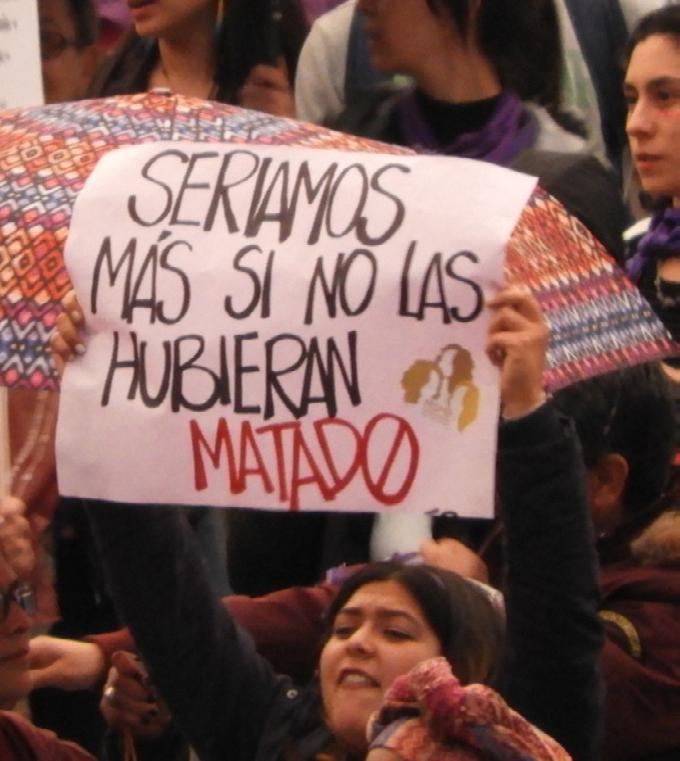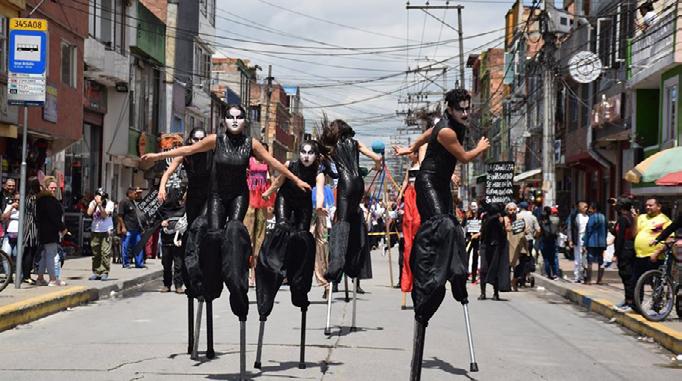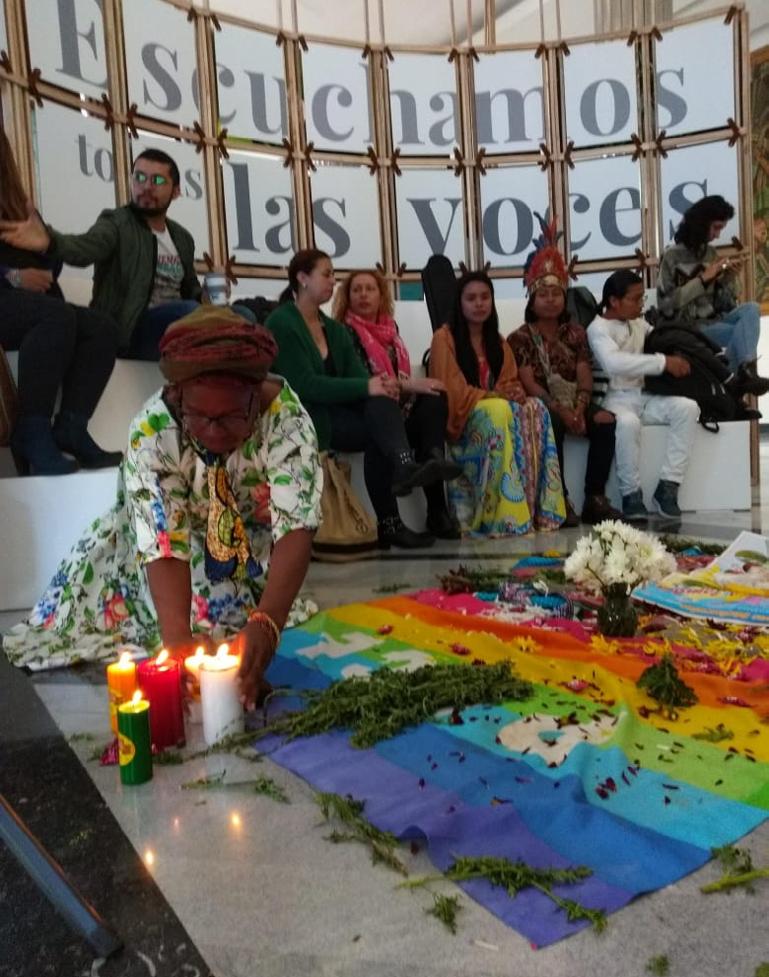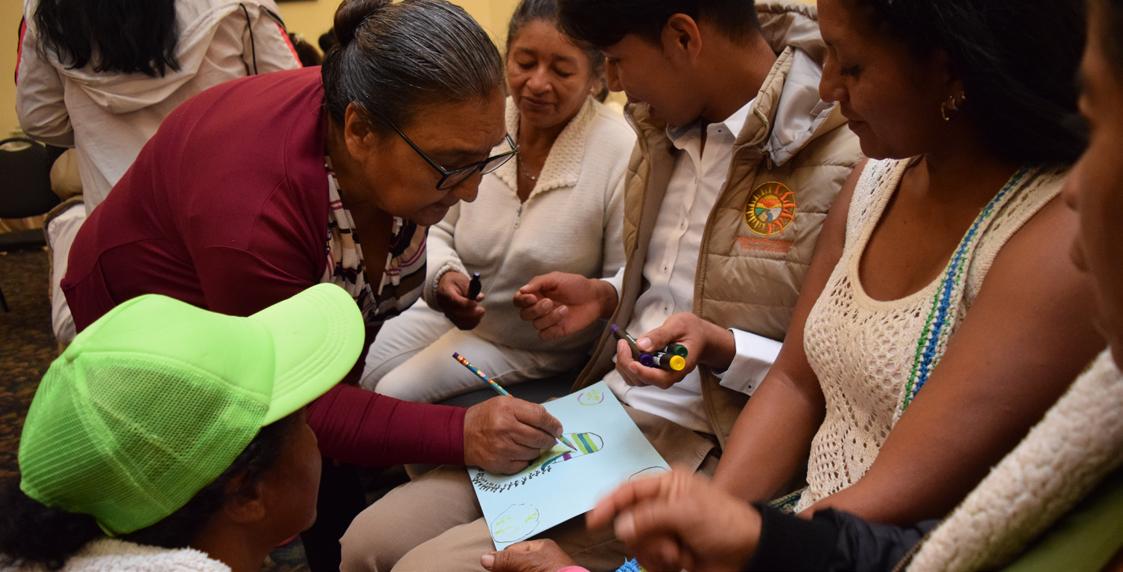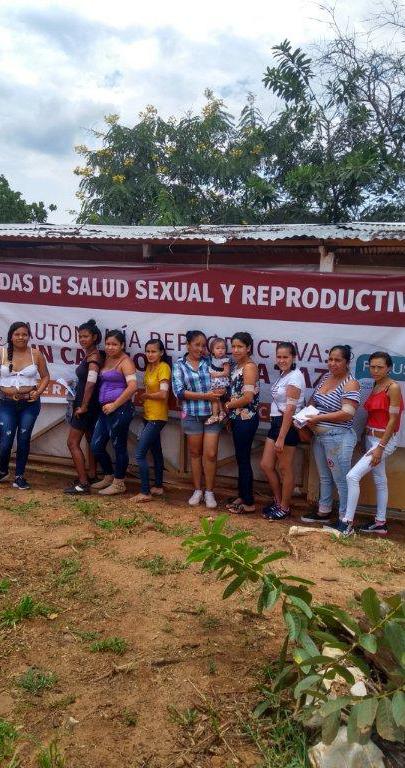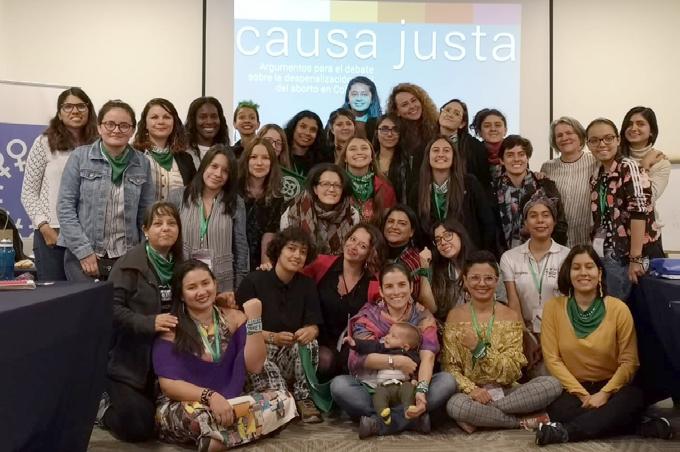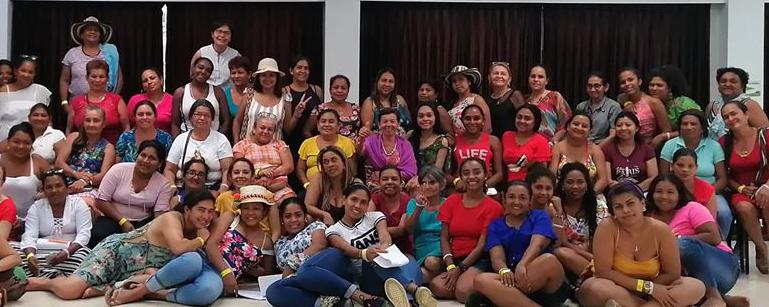
3 minute read
Defending young women’s sexual and reproductive rights
Sexual and reproductive rights are a human right, therefore, young women must have guarantees to exercise them, to decide about their own bodies, and to enjoy a sex life that is free and without discrimination.
BY: YULY ROMERO GARZÓN, Fondo Lunaria Communications Staff
n order to strengthen the work of grassroots organizations and/or the groups of diverse young women who work to defend and disseminate the right to healthcare, in particular the right to control their own bodies, and the sexual and reproductive rights of Colombian young women as a fundamental strategy to achieve sustainable and lasting peace, Fondo Lunaria, with I
support from FOKUS, backs the work of six groups of young women from around the country.
Understanding the importance of knowledge, access, and the defense of sexual and reproductive rights, organizations of young women have been working in regions like Bogotá, Nariño, Putumayo, Cauca, San Pedro de Urabá, and Antioquia. These are initiatives and projects that increase visibility on the status of sexual and reproductive rights, the rhetoric and practices that limit them, and that generate advocacy actions that will make possible a transformation of cultural, chauvinist, and patriarchal ideas so that young women can decide with whom, when, and how to fully enjoy their sexuality, guaranteeing the freedom to life and to decide about their own bodies. In Pasto and San Pedro de Urabá, the young women are focused on working with high school students from the Artemio Mendoza Carvajal and Los Almendros educational institutions, respectively. The organization Construyendo Igualdad de Género (Building Gender Equality) looks to create a cultural transformation, promoting young women's autonomy, gender equality, and decision-making through the arts and sports. In Nariño, the student group Vivo mi Sexualidad en Todo mi Derecho (Living my Sexuality with all my Rights) works from a youth perspective on the implementation of an adolescent-led space to promote sexual and reproductive rights, using pedagogical activities and dialogue among peers to address subjects like the use of contraceptives, sexually transmitted diseases, abortion, the right to independently and autonomously decide when and with whom to initiate their sex life, as well as the right to choose their sexual partners.
PHOTOS : Fondo Lunaria.
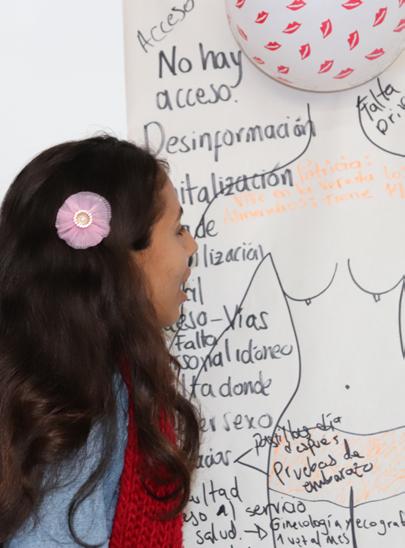
Taking into account that to be able to address sexual and reproductive rights it is important to not only understand regional dynamics but also that diverse women have particular needs and independent struggles, the young indigenous women of Ndayam Gauman Ainanok - MINGA from the Camentsa Biya community in Mocoa are building strategies to talk about their sexual and reproductive rights in community, and to strengthen and make visible their decisions to enjoy a free and peaceful sex life. Meanwhile, in Bogotá, the young black women of Jembe Afram promote their rights to healthcare and sexual, physical, emotional, and mental health education for girls, boys, and adolescents in Ciudad Bolívar by raising awareness, denouncing sexual violence, and preventing unplanned teenage pregnancies. On the other hand, alternative communication has become a key tool to create and share information and denouncements regarding the obstacles and difficulties faced by young women to access their rights. For example, in Medellín, the Colectivo Autónomas (Independent Ladies Collective) has established training exchanges between deaf and hearing women that allows them, through photography and a redesigning of service roadmaps, to obtain information and learn about their sexual and reproductive rights as social subjects, in addition to rights based on a recognition of diversity. In Popayán, the group Aquelarre, a design and visual communications laboratory, has been creating a practical guide for group work to SRR should be understood in the context of diverse women, with particular needs and independent struggles.
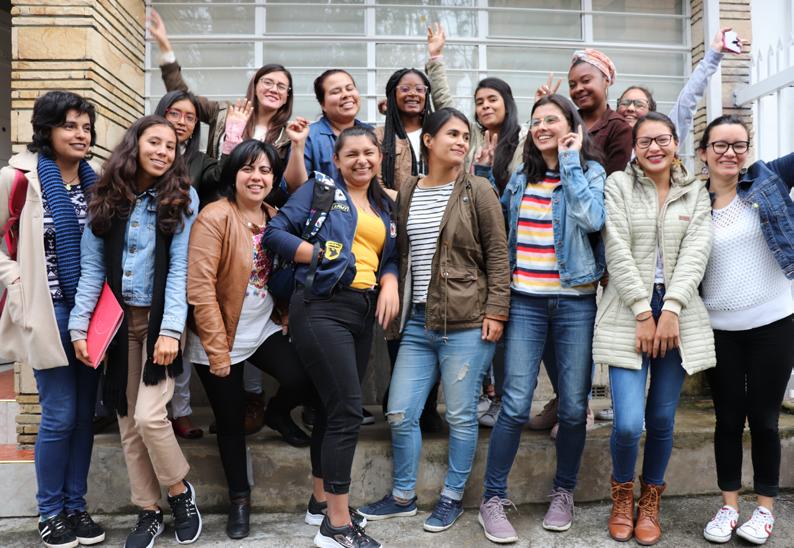
discuss the right to safe, legal, and free abortion in the three cases contemplated in ruling C-355 of 2006, directed at youth who are leading feminist initiatives and/or a gender approach to facilitate the transformation of discriminatory ideas and practices regarding women’s self-determination and autonomy over their bodies.
The political focus of these six Colombian organizations of young women is the defense of their sexual and reproductive rights and to continue breaking down the barriers that prevent them from accessing information, quality sexual education, and services. These initiatives seek to create a life free from stigmatization, discrimination, coercion, and/ or violence of any kind in their communities, regions, and cities in relation to their sexuality, and the right to decide about their own bodies, sexual orientation, and gender identity. This work also demands access to quality services with dignified and humane treatment. FM

